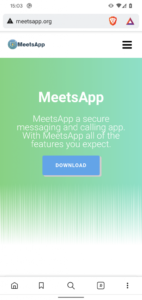With hot-ticket events firmly back on the agenda, scammers selling fake tickets online have also come out in force
As the events scene slowly came back to life in 2022, the clamor for tickets to festivals and gigs surged massively. Many festivals around the UK sold out within hours, and as a result people were tempted to take to secondary marketplaces and social networks to find resale tickets. Unfortunately, this created the ideal breeding ground for fraud and theft.
With fans becoming increasingly desperate to get their hands on a hot ticket, this is a lucrative opportunity for scammers. A Google search, made at the start of the summer, for tickets to major 2022 festivals led to a number of highly questionable links. The ads promising the much sought-after tickets could be considered the first step on the journey, where the con artist tries to cajole the victim into clicking on the ad that will redirect to a fraudulent marketplace. But these are often obvious or have over-the-top prices.
Research shows that the prevalence of scams has increased by over a fifth year-on-year. They have also become increasingly sophisticated in their attempts to fool even the most clued-up consumers. Several thousand people are thought to be victims of ticket fraud each and every year in the UK, with total losses in 2019 hitting around £1.6 million according to Action Fraud in the UK. However, the extent of fake ticket scams is likely much greater as many victims are too embarrassed to admit their mistake.
Unfortunately, the trend for tickets to be electronic rather than paper has only aggravated the problem. The bad guys can now sell the same ticket multiple times on different online platforms without suspicion and quickly evade capture by pulling the plug on their fake accounts.
In fact, not only could someone just copy the barcode and go to the event with a printout, or a photo on their phone, the only time the victims would realize they have been scammed is when they arrive at the venue and, should they not be the first one in, the ticket won’t work.
A one-way ticket to losing money
I did a quick search for tickets on eBay and Facebook Marketplace and found many examples of tickets with the barcode or barcode number clearly visible. When printed tickets with a QR/barcode on them act as the ticket to enter an event, it makes sense to never photograph the ticket and post it online as proof of the ticket’s existence.
Many people believe that just scribbling or placing a line through the number or the QR/barcode is enough to ward off scammers. Far from it. It’s actually incredibly easy to recreate the code or the number with the other one on show and produce a copy. There are even apps and online services that can turn a barcode into the corresponding number and vice versa.
Below is a sample of reproduced images of tickets to past events, as spotted on Facebook Marketplace and eBay.
This scam works very well for criminals online and it would be hard to locate them if they were using available tools to hide online, making investigation difficult. This problem effectively lies with awareness for both seller and buyer, and more should be done to help promote a safe and secure marketplace for tickets.
It may be difficult to ban uploads of this kind on these sites but a simple option would be to see Facebook and eBay blur out barcodes, QR codes, and corresponding numbers if anyone uploads an image of a ticket for proof of purchase.
Presumably, software similar to what Google uses to blur out number plates and faces on Google Maps’s Street View could be used. This would, by default, protect the seller from having the ticket duplicated, which would push scammers off the sites.
Don’t get taken for a ride
The best advice remains to do your research on the vendor you’re purchasing from, and try to avoid online marketplaces, especially for extremely popular gigs, festivals or events. Pay attention to all terms of service, shipping, and return policies. Criminals are experts at impersonating and manipulating people, so ensure you verify that sellers are who they say they are – and don’t be too eager to part with your cash, however excited you may be for those once-in-a-lifetime tickets.
The future?
Barcodes are old technology but still play a vital role in our daily lives, even helping shops and supermarkets do their daily operations efficiently and monitor and follow products around warehouses.
The future of barcodes and QR codes is about to look quite differently, though – the codes may even become invisible. Barcodes can get damaged, which may impair their functionality, but invisible barcodes (printed on the packaging using ultraviolet ink that is only visible when you point a specialized scanner towards them) could be placed multiple times all over packaging. This means that retailers could use advanced technology to scan a product and know its price or location much quicker with less room for error.
Barcodes and QR codes also increasingly come with encryption and are instantly authenticated, making it possible to recognize codes that have been replicated and enforce better protection. When sophisticated counterfeiters threaten to forge all types of products, encrypted barcodes could be an effective solution. Furthermore, we may also see barcodes added to the blockchain, which would add another level of security to the current issues of duplicated codes and possibly eradicate the problem of fake tickets or those sold multiple times.













